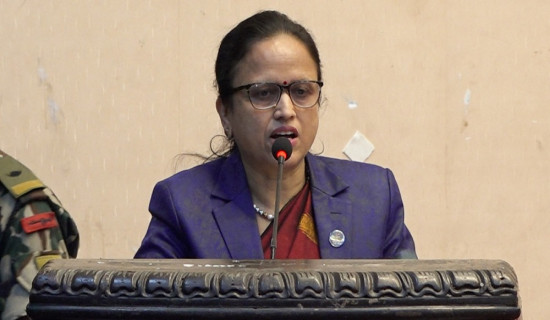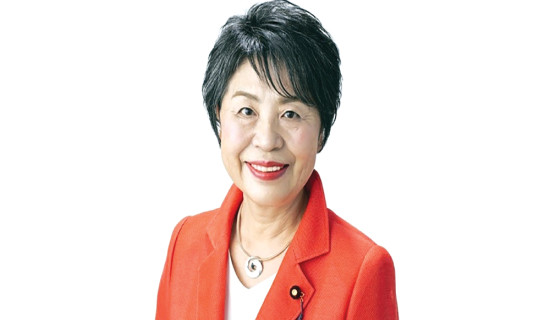- Friday, 3 May 2024
Reforming compulsory education in border, ethnic minority counties to advance high-quality education in China
By Jiayang Wang
In the 20th National Congress of the Communist Party of China report, General Secretary Xi Jinping highlighted China's establishment of the world's largest education system, achieving historic advances in universally accessible education. As socialism with Chinese characteristics embarks on a new era, addressing the educational demands of this period is essential. The report emphasizes the strategy to invigorate China through science and education, aiming to bolster modernization with skilled personnel support, and urges the acceleration of developing a high-quality education system, advancing educational quality, and promoting equity. It specifically advocates swift development of balanced, high-quality compulsory education and the integration of urban and rural education to optimize regional educational resource allocation.
The term "county domain" denotes China's established "county-centric" education management system. Given its considerable responsibility and autonomy in education, this system is well-suited for comprehensive planning and the implementation of educational reforms. In China, education supervision and evaluation are generally conducted at the county level. The "Three Regions"—border ethnic areas, remote and impoverished areas, and old revolutionary base areas—frequently encounter challenges, including low per capita living standards, high poverty rates, poor regional development, and substandard educational levels. However, throughout societal development, humanity has continually combated poverty. Particularly emphasized at the 20th Congress, under the theme of promoting high-quality development, is the need to address educational deficiencies in border ethnic regions through compulsory education reform, a crucial step for advancing China's high-quality education system.
From an internal perspective, educational reform is a systemic project encompassing reforms across various stages and departments within the system. First, it underscores the classroom's central role in teaching, significantly enhancing instructional quality. This is achieved by integrating diverse teaching methods—such as inquiry-based, heuristic, interactive, and collaborative—to optimize and enhance the quality and efficiency of classroom instruction.
Second, it enhances teachers' abilities, emphasizing their pivotal role as the "primary resource." In border ethnic regions, developing specialized plans for teacher team construction at the county level is crucial. This includes addressing the issue of teachers instructing subjects they have not studied, implementing a comprehensive compulsory education teacher training system, conducting tiered and categorized training, and significantly enhancing teachers' capabilities, thus advancing the development of a high-quality teacher workforce.
Third, it bolsters support for teaching research and enhances the development of county-level teaching research teams. Teaching research activities are essential to maintaining compulsory education quality.
Fourth, it comprehends and adapts to changes in curriculum standards, fully integrating the educational philosophy and requirements into classroom teaching. In 2022, the Ministry of Education issued new compulsory education curriculum standards, emphasizing goal-oriented, problem-oriented, and innovation-oriented teaching approaches. Consequently, county-level educational departments should methodically organize training on the new curriculum standards, using multi-dimensional approaches to deepen curriculum reform in border ethnic regions and to foster virtue through education.
Fifth, it promotes educational
evaluation reform, guiding the public towards a scientific understanding of
educational development. While border ethnic regions have traditionally focused
on score-centric evaluations, contemporary demands necessitate evaluations that
reflect comprehensive student development. Thus, at the county level, shifting
away from unscientific evaluation methods is essential. This involves
decisively addressing the persistent "only scores" and "only advancement"
issues, strengthening process evaluations, exploring value-added assessments,
and constructing a comprehensive evaluation system.
From a holistic societal perspective, educational reform is a systemic project that involves coordination between the internal and external components of the education system. First, it necessitates multi-departmental collaboration to narrow the disparities in schooling conditions across schools within the county domain. To enhance the basic schooling conditions of underperforming schools in border ethnic regions, external departments including finance, natural resources, and human resources and social security must collaborate. Therefore, it is advisable for the government to lead the establishment of a reform group to improve underperforming school conditions through multi-departmental collaboration, effectively reducing disparities in schooling conditions within the county domain. Second, it enhances digital empowerment by deepening the integration of information technology into education and teaching.
The
application of information technology has yielded impressive results in
transforming and innovating compulsory education teaching methods. In border
ethnic regions, compulsory education should promote information-based teaching
activities like "one teacher, one excellent course, one course, one famous
teacher," continuously generating and disseminating high-quality resources
across subjects. Additionally, initiatives such as "special delivery
classrooms," "famous teacher classrooms," and "famous
school online classrooms" can enhance the development of underperforming
schools and teaching points, thereby expanding access to high-quality
educational resources within the county domain. Third, it establishes a
monitoring and evaluation system to ensure balanced development of compulsory
education across the region. County-level governments, in collaboration with
government supervision departments, advance the evaluation of balanced
compulsory education development, promoting a shift from standardized
benchmarks to high-quality development in education and teaching within border
ethnic regions.
(Jiayang Wang is Associate Professor at the Faculty of Teacher Education, Honghe University, P.R. China.)




-square-thumb.jpg)
-square-thumb.jpg)
-original-thumb.jpg)








